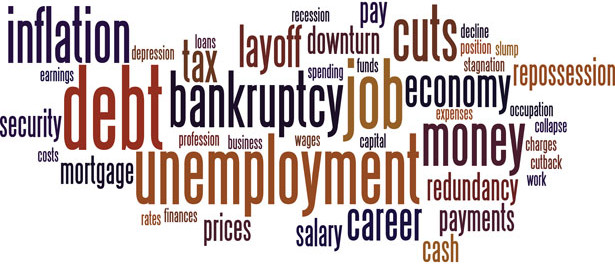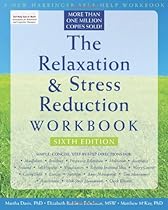Stress and Unemployment; How to Make it More Manageable

 This week I received a question from an old acquaintance, “How do I reduce my stress level regarding job hunting?” I found this question very appropriate as I had spent the time from August 2012 to December 2013 trying to find a new full time job. As we are all aware, this is not as simple a task as it once was. Being unemployed is one of the major life stressors (I frequently refer to a great book, The Relaxation & Stress Reduction Workbook. If you do not already own a copy, it is a book that I would recommend.). There are several things that I did to manage my stress during this period. As any stress management or wellness plan is a very personalized process, please remember that what I am going to share is not a recommendation for you, it is just an example some of the ways that worked for me. The important thing is for you to find the experiences that are meaningful for you in your stress reduction program.
This week I received a question from an old acquaintance, “How do I reduce my stress level regarding job hunting?” I found this question very appropriate as I had spent the time from August 2012 to December 2013 trying to find a new full time job. As we are all aware, this is not as simple a task as it once was. Being unemployed is one of the major life stressors (I frequently refer to a great book, The Relaxation & Stress Reduction Workbook. If you do not already own a copy, it is a book that I would recommend.). There are several things that I did to manage my stress during this period. As any stress management or wellness plan is a very personalized process, please remember that what I am going to share is not a recommendation for you, it is just an example some of the ways that worked for me. The important thing is for you to find the experiences that are meaningful for you in your stress reduction program.
There are a couple of things that made my unemployment more manageable from a financial perspective. I was eligible for unemployment insurance and received payments every two weeks. I also am married to a woman who earns a good salary, and also believes in living within our means. We made a few adjustments to our monthly expenses and we were able to manage, even though our lifestyle did change a little bit in a couple of ways. The important points here are that we stayed in close communication, we made choices to reduce spending together, and we supported each other. The financial and the relationship domains are very interdependent and my wife and I were able to stay balanced in these, which reduced stress levels greatly.
During this period I made a daily review of available jobs and submitted resumes to everything I thought I was qualified for. I worked with an employment agency to get more exposure. Eventually my local school district opened hiring for substitute teachers and I was hired to work for them. Even though the pay was not higher than the unemployment payments, I decided it would be better to go out to work on any day that there was an assignment. I felt engaged with the world and also enjoyed teaching the children. Eventually I was placed in a temporary contract to work full time and was able to keep this position until I was hired in a permanent full time position.
Some of the things that I did on a regular basis were very personal and fell into the category of self-care. I practiced Tai Chi several times a week. I worked out at the gym two to three times a week. I sat and wrote on topics that were stimulating and shared them with a friend who could respond in a stimulating interaction (What would we do without email?). I read for enjoyment, and I read for enrichment. I took the dogs for a walk in the morning on a daily basis. I took guitar lessons and practiced my lessons daily. I started painting in watercolors. I was able to use the time to finish the final review process on my dissertation and complete my degree. You can see that I have described activities that benefit body, mind, and spirit.
All of these activities were desirable and enjoyable. I was attracted to them easily. I did not need to force myself to do any of them. That is an important take away – if you are going to do anything that is intended to care for yourself; it is very useful to do the things that you want to do. Finding these things may or may not be easy, depending on how large your range of experience has been. It is possible to expand your range through practice. Sometimes taking classes or finding a good coach is necessary. Do whatever it takes and you will continue to grow.
I was able to continue the regular daily practices that I held whether I was employed or not. I eat a regular diet of mostly vegetarian meals, though I am flexible and include seafood often. I do not exclude meat from my diet, though it is minimal. My exercise regimen was increased during unemployment due to the extra time that was available. I also had more time for relaxation and meditation practice. Regular relaxation practice is a key to stress management at all times. I maintain a regular meditative practice or mindfulness practice as part of my general attitude. Practicing the various intentional activities that are part of a strong spiritual orientation is one of the most profound and beneficial supports for my wellness. Some may call these activities prayer, meditation, positive thought, and so on. Labels are not important. The process is important. The bottom line is to integrate the physical, mental, emotional, and spiritual aspects of self in your daily life. This is wellness practice. It is a process that is never ending and constantly changing.
For those of you who have had the experience of unemployment and have found ways to manage the stress in your own way, it would be wonderful if you would comment on this post and share what worked for you. We can all learn from each other.



